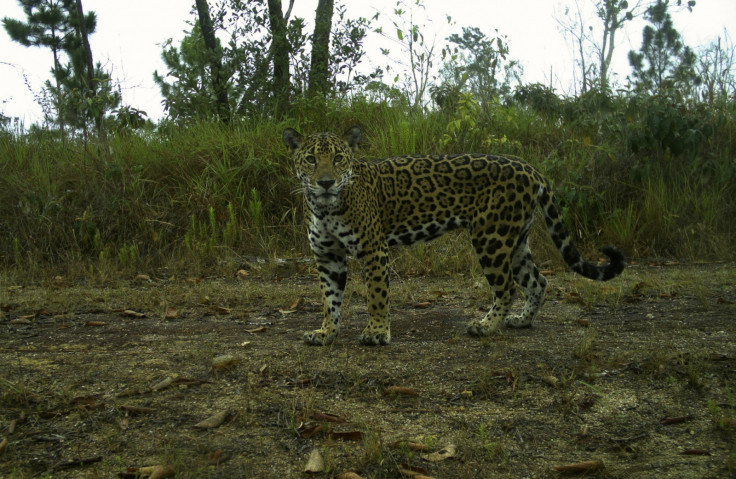New study finds American jaguars threatened by increasing isolation
Where once the big cat covered Mesoamerica, their populations have becoming further cut off from each other.

A new study from the American Museum of Natural History has found that jaguars in Central America are facing increasing threats as their habitats become more isolated and differing groups lose connections.
The study was the largest ever genetic survey of the Mesoamerican jaguar (Panthera onca) and looked at the DNA of big cats from several areas to analyse their genetic diversity. The analysis found that jaguars in Mexico had the lowest genetic variation, with those in Honduras, Guatemala, Belize and Costa Rice not far behind.
Low genetic variation is not a good sign for the jaguar, as explained in the study: "Genetic diversity has important ecological consequences in natural populations, including the maintenance of evolutionary potential and individual fitness to respond to threats such as environmental change and disease."
"We believe that these jaguars were once continuously distributed over the whole landscape of Mesoamerica, but human activity has resulted in smaller populations that are isolated from other groups," said George Amato, director of the American Museum of Natural History's Sackler Institute for Comparative Genomics.
"We want to know whether this fragmentation is resulting in reduced gene flow or inbreeding or other things that might be detrimental to the animals. But most importantly, we want to figure out ways to reconnect these populations or, even if they're not completely isolated, to engage in activities that allow jaguars to move more freely across the landscape."
One of the paper's leader authors, Claudia Wultsch added: "Over the last 100 years, jaguars in Mesoamerica have been pushed out from more than 77 percent of their historic range."
CEO of conservation charity, Panthera, Alan Rabinowitz, said: "Unlike some other big cats and wildlife teetering on the brink of extinction, here we have a remarkably resilient species whose numbers are strong enough to bounce back if given the chance to thrive."
Panthera is working on a 'Jaguar Corridor Initiative' which seeks to connect core populations all over south America and attempt to keep up the genetic integrity of the species.
© Copyright IBTimes 2025. All rights reserved.






















